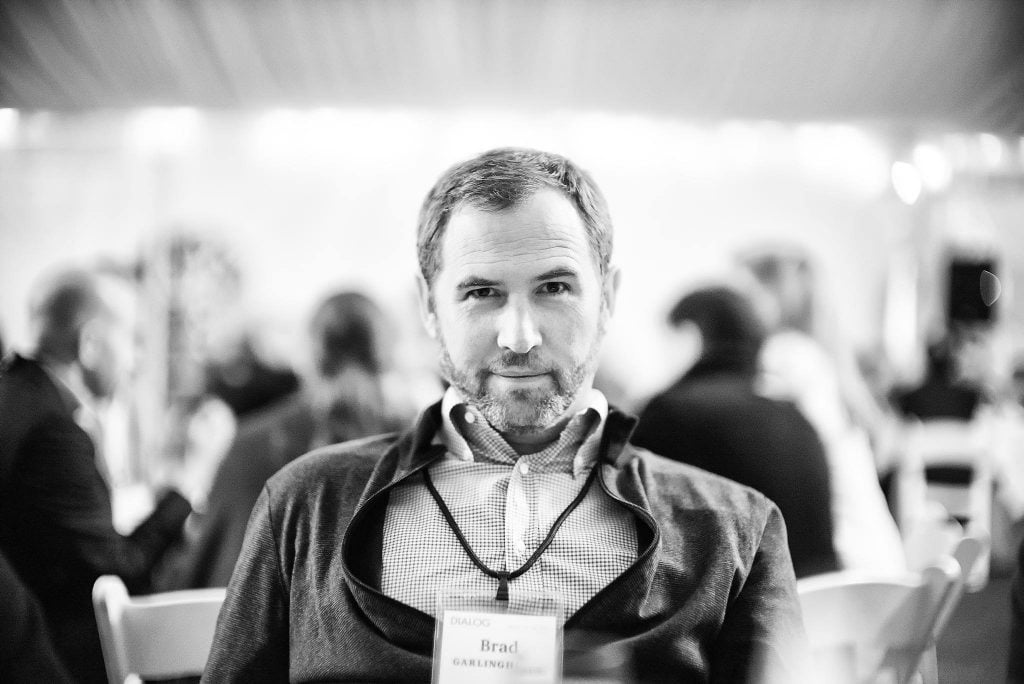Ripple Chief Brad Garlinghouse is Keeping It Real on ICOs

If Ripple's Brad Garlinghouse is scared of JP Morgan's new "cryptocurrency" project, he isn't showing it. | Source: Christopher Michel/Flickr
Ripple’s chief executive has some words of advice for issuers behind ICOs: don’t spend all of your funds in one place.
Brad Garlinghouse, who is at the helm of the blockchain startup that’s behind the XRP token, admonished ICO companies to “save some of the proceeds” in the event they find themselves the target in a token-price fueled class-action complaint, according to remarks he made to CNBC . He also believes the legal community will emerge as the real winners in the ICO boom.
“Entrepreneurs need to be [going in with] eyes wide open … The winners are going to be the lawyers because they’re going to help you issue the token and then they’re going to help you defend it,” Garlinghouse is quoted as saying.
For Tezos, whose ICO controversy was well documented, the law firms defending the embattled startup are Los Angeles-based Baker Marquart as lead counsel in addition to Palo Alto, Calif.-based co-counsel Cooley LLP.
Part of the messy dispute between the Tezos founders and the head of the Swiss Foundation involved legal fees, with the Breitman duo suggesting the foundation pay the lawyer fees for the complaints ICO participants lodged against them. In reality, those lawyer fees would likely come out of the USD 232 million that the ICO raised from investors, adding insult to injury to deal participants.
Garlinghouse offered another piece of advice.
“Better sometimes to focus on solving real problems for real customers, and not worry about running infrastructure for a token issue, getting listed on exchanges and all the steps that come with that.”
Garlinghouse made the comments to CNBC from Singapore’s Money 20/20 event.
Utility Token vs. Security Token
ICOs are also in the spotlight in Israel, where they just received more wind at their back. A committee dedicated to studying if token sales recommends “lenient regulation for ICOs on a limited scale,” according to a report they submitted to the Israel Securities Authority, as reported in regional publication Globes . They also want to spur innovation by creating a “regulatory sandbox” dedicating to trialing ICOs and advising companies.
They’re also calling for a clear distinction to be made between tokens that are designed as a security and those that function as a utility, which is a murky area that issuers and regulators wrestle with across most jurisdictions. A security token exhibits characteristics of ownership, membership or dividends while a utility token reflects usage rights surrounding a project, the report determined.
If Israel implements these recommendations, we could see more issuers flock to the country to list their ICOs.
Featured image from Shutterstock.